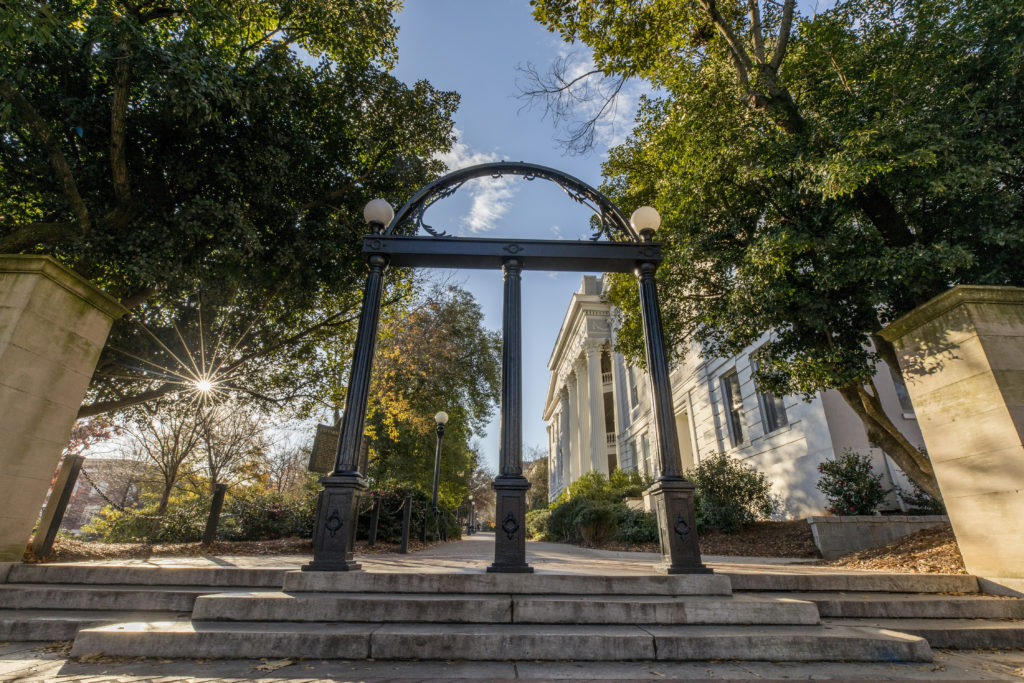The fiscal year 2021 budget was officially passed by the Georgia General Assembly on Friday, June 26, and signed by Gov. Brian Kemp on Tuesday, June 30. The budget includes funding for several critical university capital projects and avoids furloughs for UGA’s employees.
“On behalf of the University of Georgia, I want to extend my deepest appreciation to Gov. Brian Kemp and his team, the Georgia General Assembly and the University System of Georgia Board of Regents, including Chairman Sachin Shailendra and Chancellor Steve Wrigley,” said UGA President Jere W. Morehead. “The University of Georgia is extremely grateful for their dedication to creating a state budget that continues to make higher education a priority even during these very challenging times.”
After a suspension of the legislative session in March, state lawmakers worked diligently over the past few weeks to craft a budget for the new fiscal year. While the FY21 budget reduces state spending by 10 percent, it does not require furloughs of the state’s employees, including thousands of UGA faculty and staff. “I know this pandemic created a particularly difficult set of financial issues for crafting a state budget,” Morehead said, “and I am thankful that our lawmakers protected our hardworking and dedicated faculty and staff from furloughs.”
Morehead noted that the significant reduction in state funding will create immense challenges for UGA in the coming year. “Managing very carefully with our more limited state resources and remaining focused on the ongoing development of non-state revenue sources will be crucial as we navigate through what will most certainly be a very difficult year ahead with regards to our fiscal affairs.”
The FY21 budget did include funding for several key UGA capital projects. Lawmakers provided $42.8 million in capital funding for construction of the second phase of I-STEM, which allows the university to continue expanding laboratories and professional development spaces for chemistry, engineering and other scientists to conduct innovative and translational interdisciplinary research and drive federal grant growth and economic development.
In addition, $5 million in capital funding was provided to complete the third and final phase of renovations to the Driftmier Engineering Center renovation. This project includes additional instructional space, a new Professional Development Center, and ADA accessibility improvements to support UGA’s fast-growing engineering programs.
The FY 2021 budget also includes $2.2 million for the design of the first phase of a new Poultry Science Complex. This proposed project will provide leading-edge teaching and research space to develop transformational technologies that support the vital poultry production sector of our state, nation and world.
The state budget also provides $1.36 million to expand the faculty, staff and operating costs of the AU/UGA Medical Partnership in order to combat the statewide shortage of physicians and ensure the state’s resiliency in the face of public health crises, such as the one facing Georgia today. Under this plan, medical students in the Partnership will eventually grow to 240 students in Athens.
Lastly, the University System of Georgia will receive $63.7 million for major renovations and repairs for critical projects at facilities across all 26 institutions, including UGA. This level of funding is essential to an aging campus like the University of Georgia.
Morehead also thanked Lt. Gov. Geoff Duncan; Speaker David Ralston; Appropriations chairmen Terry England, Blake Tillery and the late Jack Hill; and House and Senate leaders for their support of higher education in this budget.
“The university’s appreciation also goes out to the members of our local Athens delegation,” Morehead said. “Sen. Bill Cowsert, Sen. Frank Ginn, Rep. Spencer Frye, Rep. Houston Gaines and Rep. Marcus Wiedower—we are grateful for their hard work and ongoing commitment to the University of Georgia.”
